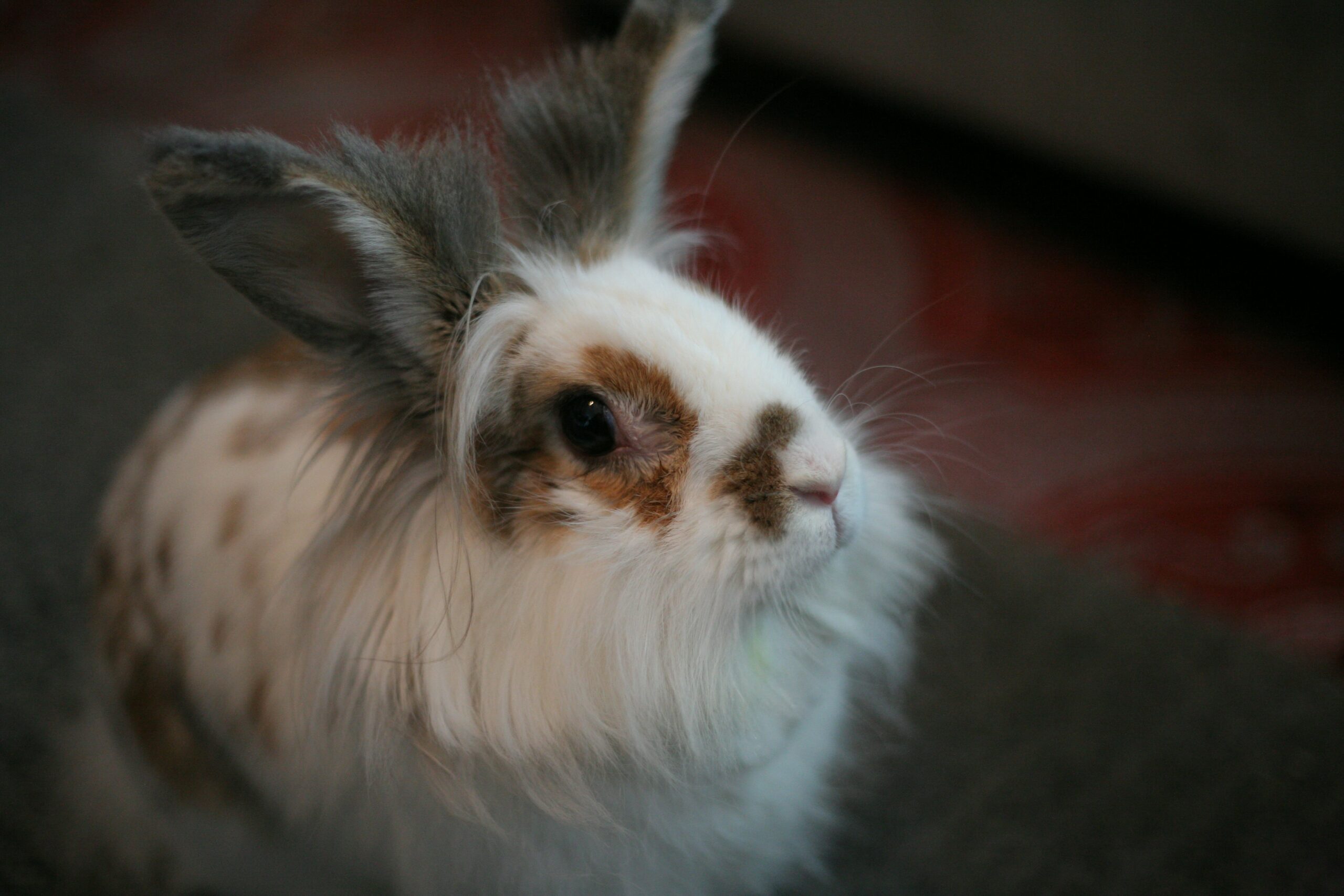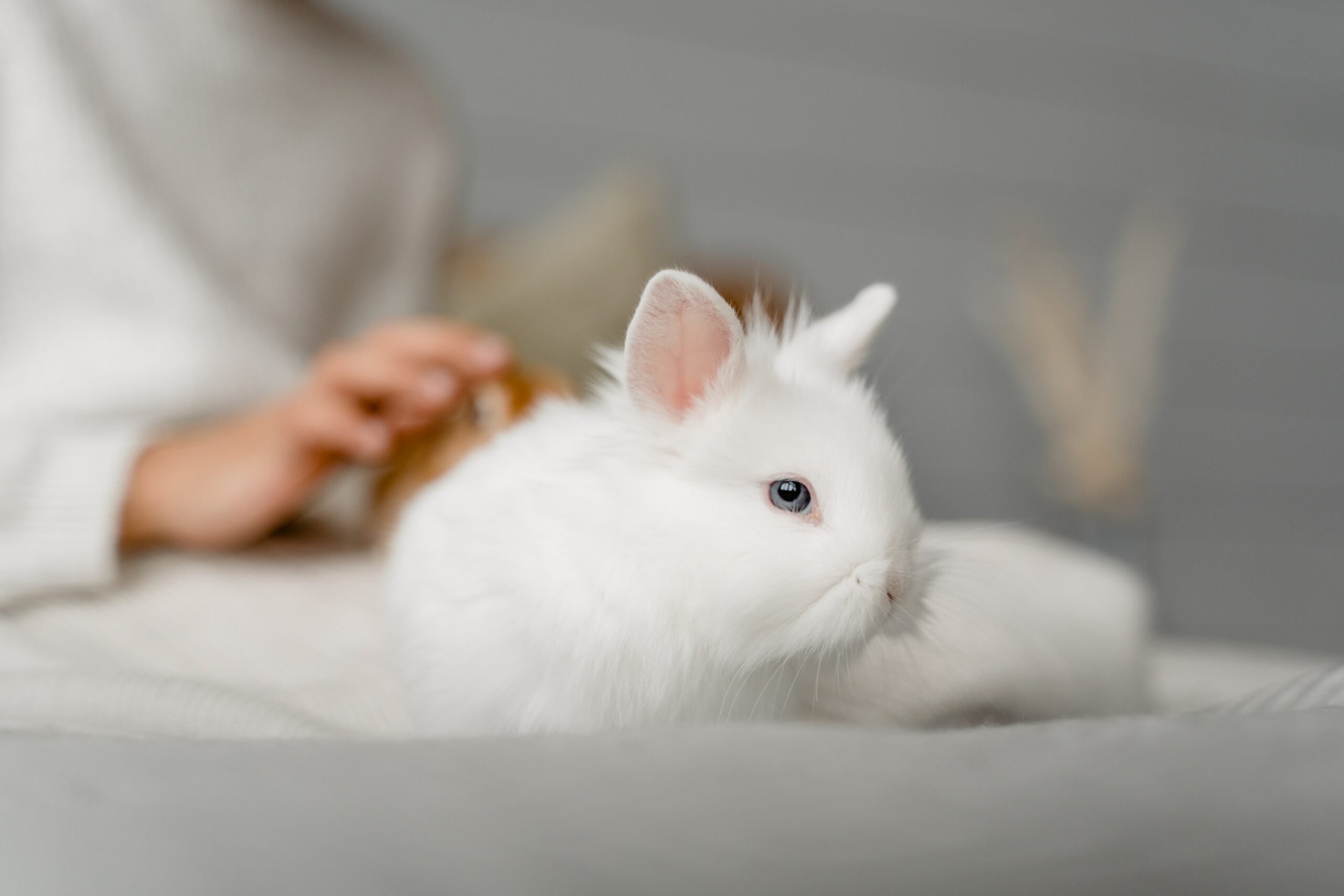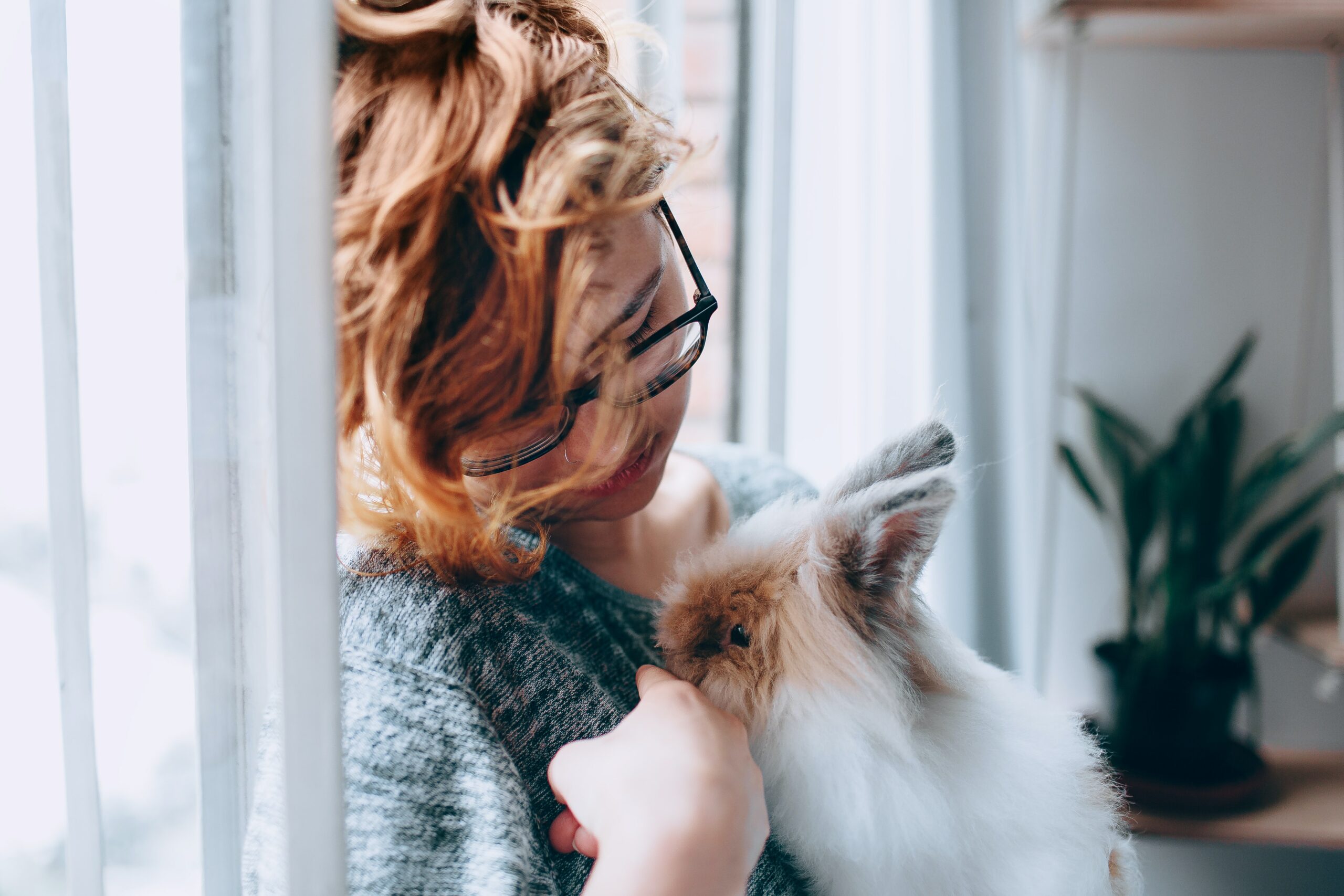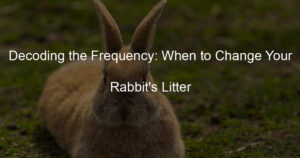Lionhead rabbits are adorable and captivating pets, known for their unique appearance and friendly demeanor. If you’re a proud owner of a lionhead rabbit, you may find yourself wondering if your furry friend is expecting little ones. Pregnancy in rabbits is a fascinating and delicate process, and being able to recognize the signs can help you provide the appropriate care and support.
In this article, we will explore the various indicators of pregnancy in lionhead rabbits, including behavioral changes, physical alterations, and dietary requirements. By the end, you’ll have a comprehensive understanding of how to tell if your lionhead rabbit is pregnant and how to best care for her during this special time.
Could Your Lionhead Rabbit Be Pregnant?
The first question that may cross your mind is whether your lionhead rabbit could be pregnant. If your rabbit has been in contact with a male rabbit (buck), there is a possibility of pregnancy. Lionhead rabbits reach sexual maturity at around four to six months, so if your rabbit is of breeding age and has had access to a male rabbit, it’s crucial to consider the likelihood of pregnancy.
What Are the Early Indicators of Pregnancy in Lionhead Rabbits?

In the early stages of pregnancy, lionhead rabbits may display certain signs that can help you detect pregnancy. One of the key indicators is changes in behavior. A pregnant rabbit may become more territorial or protective of her space.
She may also exhibit nesting behavior, where she gathers materials to create a cozy nest for her future offspring. Pay attention to any sudden changes in behavior, as they could be an early indication of pregnancy.
How Does the Behavior of a Pregnant Lionhead Rabbit Change?
As the pregnancy progresses, you may observe further changes in your lionhead rabbit’s behavior. Some pregnant rabbits become more affectionate, seeking more attention and interaction with their owners. On the other hand, others may become more irritable or less interested in socializing.
It’s essential to respect your rabbit’s preferences and provide a calm and comfortable environment to support her during this time.
Are There Physical Changes in a Pregnant Lionhead Rabbit?
Yes, there are physical changes that occur in a pregnant lionhead rabbit. One of the most noticeable alterations is an enlarged abdomen. As the babies develop, the belly of a pregnant rabbit becomes visibly larger.
Additionally, you may notice an increase in nipple size, as the rabbit’s body prepares for nursing. Some pregnant lionhead rabbits also experience weight gain, which is a normal physiological response to pregnancy. Keep in mind that these physical changes may vary among individual rabbits, so it’s essential to monitor your rabbit’s overall health and well-being.
| Physical Changes | Description | Implications |
|---|---|---|
| Enlarged Abdomen | The belly of a pregnant lionhead rabbit becomes visibly larger. | Indicates the presence of growing babies and confirms pregnancy. |
| Increased Nipple Size | The nipples of a pregnant lionhead rabbit may become more prominent. | Suggests hormonal changes and preparation for nursing offspring. |
| Weight Gain | Pregnant lionhead rabbits tend to gain weight throughout pregnancy. | Normal physiological response; provides the necessary energy for pregnancy. |
| Changes in Fur Quality | The fur of a pregnant lionhead rabbit might appear dull or unkempt. | Hormonal fluctuations can affect coat conditions temporarily. |
| Behavioral Changes | A pregnant lionhead rabbit may exhibit nesting behavior. | Preparing a nest indicates nearing labor and impending birth. |
Can You Feel the Babies Inside a Pregnant Lionhead Rabbit?
Feeling the babies inside a pregnant lionhead rabbit is challenging due to the thickness of their fur and the protective layer of muscle. Unlike larger animals, such as dogs or cats, it’s difficult to detect the presence of individual baby rabbits through touch.
However, if you gently place your hand on your rabbit’s belly, you may feel movements or a subtle fluttering sensation, indicating the presence of active babies.
When Should You Expect Nesting Behavior in a Pregnant Lionhead Rabbit?
Nesting behavior typically occurs as the due date approaches. It’s common for pregnant lionhead rabbits to start gathering materials, such as hay or fur, to create a nest for their babies. This behavior usually happens within a few days or even hours before labor.
Providing your rabbit with appropriate nesting materials, such as straw or soft bedding, can help fulfill her maternal instincts and create a safe and comfortable environment for the upcoming birth.
What Are the Dietary Requirements for a Pregnant Lionhead Rabbit?
A pregnant lionhead rabbit requires a balanced and nutritious diet to support both her health and the health of her growing babies. During pregnancy, it’s crucial to provide your rabbit with high-quality hay, fresh vegetables, and a limited amount of pellets specifically formulated for rabbits.
Hay should be the primary component of their diet, as it aids in digestion and helps maintain proper dental health. Ensure that the hay is fresh, clean, and free from mold or pests. Introduce a variety of fresh vegetables into your rabbit’s diet to provide essential vitamins and minerals.
Leafy greens like kale, spinach, and romaine lettuce are excellent choices. However, remember to introduce new vegetables gradually and monitor your rabbit’s response to ensure they don’t develop any digestive issues. Additionally, it’s important to avoid foods that can be harmful to rabbits, such as chocolate, caffeine, onions, and garlic.
Can a Pregnant Lionhead Rabbit Still Mate?
While it is rare, a pregnant lionhead rabbit can still mate. Female rabbits can become pregnant soon after giving birth, as they are capable of breeding almost immediately. To prevent an unwanted pregnancy or potential complications, it’s recommended to separate the male and female rabbits during the pregnancy and until the babies are weaned.
How Long Does Pregnancy Last in Lionhead Rabbits?

The gestation period of lionhead rabbits typically ranges from 28 to 34 days. However, it’s important to note that the exact duration can vary slightly among individuals. Monitoring the breeding dates and observing your rabbit’s physical and behavioral changes can help you estimate when to expect the arrival of the baby rabbits.
Is There a Way to Confirm Pregnancy in a Lionhead Rabbit Without a Vet?
While a veterinarian can perform a definitive pregnancy test using ultrasound or palpation, there are some signs you can observe to confirm pregnancy in your lionhead rabbit. Keep an eye out for the previously mentioned physical changes, such as an enlarged abdomen, increased nipple size, and weight gain.
The presence of nesting behavior closer to the due date is another strong indication of pregnancy. However, for a confirmed diagnosis and expert guidance, it’s always advisable to consult a veterinarian.
What Are the Risks and Complications of a Lionhead Rabbit Pregnancy?
Pregnancy in lionhead rabbits is generally a natural and uncomplicated process. However, there are certain risks and potential complications that can arise. One of the most serious complications is dystocia, which occurs when a pregnant rabbit experiences difficulties during labor and delivery.
Dystocia can be life-threatening for both the mother and the babies, requiring immediate veterinary attention. Other potential risks include miscarriage, stillbirth, or the need for a cesarean section (C-section) if the mother is unable to deliver naturally. Regular monitoring and being prepared for any potential complications can help ensure the well-being of your rabbit and her babies.
How Many Babies Can a Lionhead Rabbit Have in One Pregnancy?
Lionhead rabbits usually have litter ranging from one to eight babies, with an average litter size of three to five. However, litter sizes can vary widely, and it’s important to note that the number of babies does not necessarily correlate with the health or quality of the pregnancy.
Providing a safe and comfortable nesting environment, along with proper nutrition, can contribute to the well-being of the mother and her offspring.
Is It Safe to Handle a Pregnant Lionhead Rabbit?
Handling a pregnant lionhead rabbit requires caution and gentleness. While it is generally safe to handle them during pregnancy, it’s important to be mindful of the mother’s comfort and stress levels. Avoid excessive or rough handling, as it may cause distress or lead to potential complications.
If you need to handle your pregnant rabbit, make sure to provide support under her abdomen and hindquarters, allowing her to feel secure and stable.
How Can You Support a Pregnant Lionhead Rabbit During Labor?
Supporting your lionhead rabbit during labor is essential to ensure a smooth and safe birthing process. Here are a few ways you can provide support:
-
Create a quiet and secluded space: Set up a nesting box in a quiet area where your rabbit can feel secure. Line the box with soft bedding material, such as straw or shredded paper, to provide comfort and insulation.
-
Monitor her closely: Keep a watchful eye on your rabbit as her due date approaches. Note any changes in behavior, such as restlessness, increased nesting activity, or decreased appetite, as these may be signs that labor is imminent.
-
Provide ample food and water: Ensure your rabbit has easy access to fresh water and a plentiful supply of hay and fresh vegetables during labor. This will help keep her hydrated and provide the necessary nutrients for the birthing process.
-
Minimize disturbances: Avoid disturbing or startling your rabbit during labor. Loud noises or sudden movements can cause stress and disrupt the natural birthing process. Maintain a calm and peaceful environment.
-
Seek veterinary assistance if needed: While most rabbit births proceed without complications, it’s crucial to be prepared for any emergencies. If you notice prolonged labor, excessive bleeding, or signs of distress in the mother or babies, contact a veterinarian immediately for professional guidance and assistance.
What Should You Do if Your Lionhead Rabbit Is Pregnant?

If you discover that your lionhead rabbit is pregnant, it’s important to take certain steps to ensure her well-being and the health of her babies. First and foremost, schedule a pre-natal checkup with a veterinarian who specializes in rabbits.
This will help confirm the pregnancy and allow you to discuss any necessary precautions or preparations. Next, make adjustments to your rabbit’s diet to ensure she receives a balanced and nutritious meal. Provide high-quality hay, fresh vegetables, and limited pellets formulated for rabbits, along with constant access to clean water.
Creating a comfortable nesting box in a quiet area of your home is essential. Line the box with soft bedding material and offer plenty of nesting materials like straw or fur to encourage your rabbit’s natural instincts.
Throughout the pregnancy, closely monitor your rabbit’s behavior, appetite, and physical changes, documenting any unusual observations or concerns to discuss with your veterinarian. It’s also important to educate yourself on the birthing process, including the signs of labor, stages of delivery, and potential complications.
Summing Up
Recognizing the signs of pregnancy in your lionhead rabbit is crucial for providing appropriate care and support during this special time. By observing changes in behavior, and physical alterations, and understanding their dietary requirements, you can ensure the well-being of both the mother and her babies.
Remember to consult a veterinarian for professional guidance and assistance, and be prepared for any potential complications that may arise during labor. With proper care and attention, you can help your lionhead rabbit have a safe and successful pregnancy, leading to the arrival of adorable and healthy baby bunnies.




